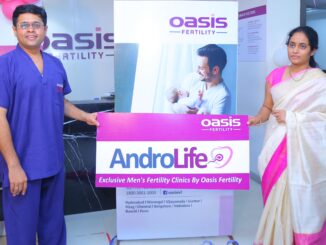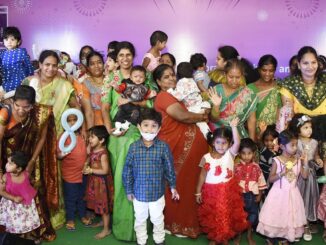
Author: Dr Durga G Rao, Co-founder & Medical Director, Oasis Fertility
The immense joy and satisfaction of parenthood should not be denied to anybody. But in some couples, ethical concerns pop up and kill the desire to have a biological child. In the case of couples who are seroconcordant (both the partners are HIV positive) or serodiscordant (one partner is HIV positive and the other is not), the yearning for a child gets laden with guilt, fear, uncertainty, and hopelessness. The parenthood dream gets overpowered by the fears of women getting infected during the process of conception or vertical transmission (transfer of HIV from mother to child) either during the time of delivery or during the breastfeeding period. So, should couples with HIV infection give up their dreams of having a biological child? Not necessary in today’s era of advanced medical management. Newer treatments and Assisted Reproductive Techniques can help these couples in becoming happy parents with healthy children.
Does HIV impact fertility?
Globally, about 37 million are infected with HIV and almost 80% of them are of reproductive age. HIV-positive women are prone to gynecological diseases like pelvic inflammatory disease and cervical dysplasia which can impact fertility or increase the risk of complications during pregnancy. Sperm motility, morphology is affected in the case of HIV-positive men. Also, hypogonadism, impotence, erectile dysfunction are observed more commonly in these men.
Can HIV couples conceive naturally?
Of course, Yes. Preconception Counseling plays a crucial role as it helps the couple get a clear picture of the risks involved and also the possible outcomes. If the male partner is HIV-positive while the female partner is unaffected, the male partner would be advised to take up antiretroviral therapy to reduce the viral load, and the female partner can go for PrEP (pre-exposure prophylaxis) to protect herself from the transmission. The couple is advised to have unprotected intercourse only around the time of ovulation. This method will help many couples who have normal ovarian reserve with no tubal pathology and normal semen parameters to conceive naturally. Not only that, children born to them have a very high chance of being HIV-negative. PrEP is another new treatment process that can be beneficial but we have to wait and watch. If only the woman is HIV- positive and her husband is HIV – negative with her viral load being undetectable, she can try for pregnancy through self-insemination during the time of ovulation. Elective cesarean delivery, neonatal prophylaxis, and avoidance of breastfeeding are shown to reduce the transmission from mother to child. If pregnancy is not achieved, then the couple can go in for assisted reproductive techniques.
Fertility Treatment Options for HIV couples:
Medical advancements have resulted in a significant increase in the life expectancy of HIV patients and hence their desire for a child has to be supported.
The assisted reproductive technique is the best and safest method that can avoid sexual transmission of the disease. If a male is HIV-positive, sperm washing technique is used that eliminates the risk of transmission to a great extent after which IUI (Intra-uterine Insemination) or IVF (In Vitro Fertilization)/ICSI (Intracytoplasmic Sperm Injection) is performed. Seroconversion was not observed in the female partner and neonatal transmission was absent when the viral loads in HIV-positive men were undetectable. HIV -1 RNA testing on the semen sample helps to detect very low viral loads also which can be undetectable in the blood sample. The significance of the presence of viral RNA in semen sample on the risk of transmission is not very clear.
Fertility treatments help in minimizing the risk of HIV transmission thereby helping the couples achieve parenthood. But several barriers prevent HIV couples from accessing the technologies for reproductive health. The major intention of advanced fertility treatment is to offer safer pregnancy and delivery options to HIV couples.
Fertility centres need to follow strict guidelines while handling the samples of HIV couples through the way of decontamination of labs, proper waste disposal, and taking all necessary precautions like processing and storing specimens from infected individuals in a dedicated area.
As the saying “Knowledge is Power”, HIV-infected individuals have the right to know the possible treatment options, risks involved, etc. that can help them in making informed decisions regarding their reproductive desires. Adoption is also one of the options that can bring the joy of parenthood in their lives!



